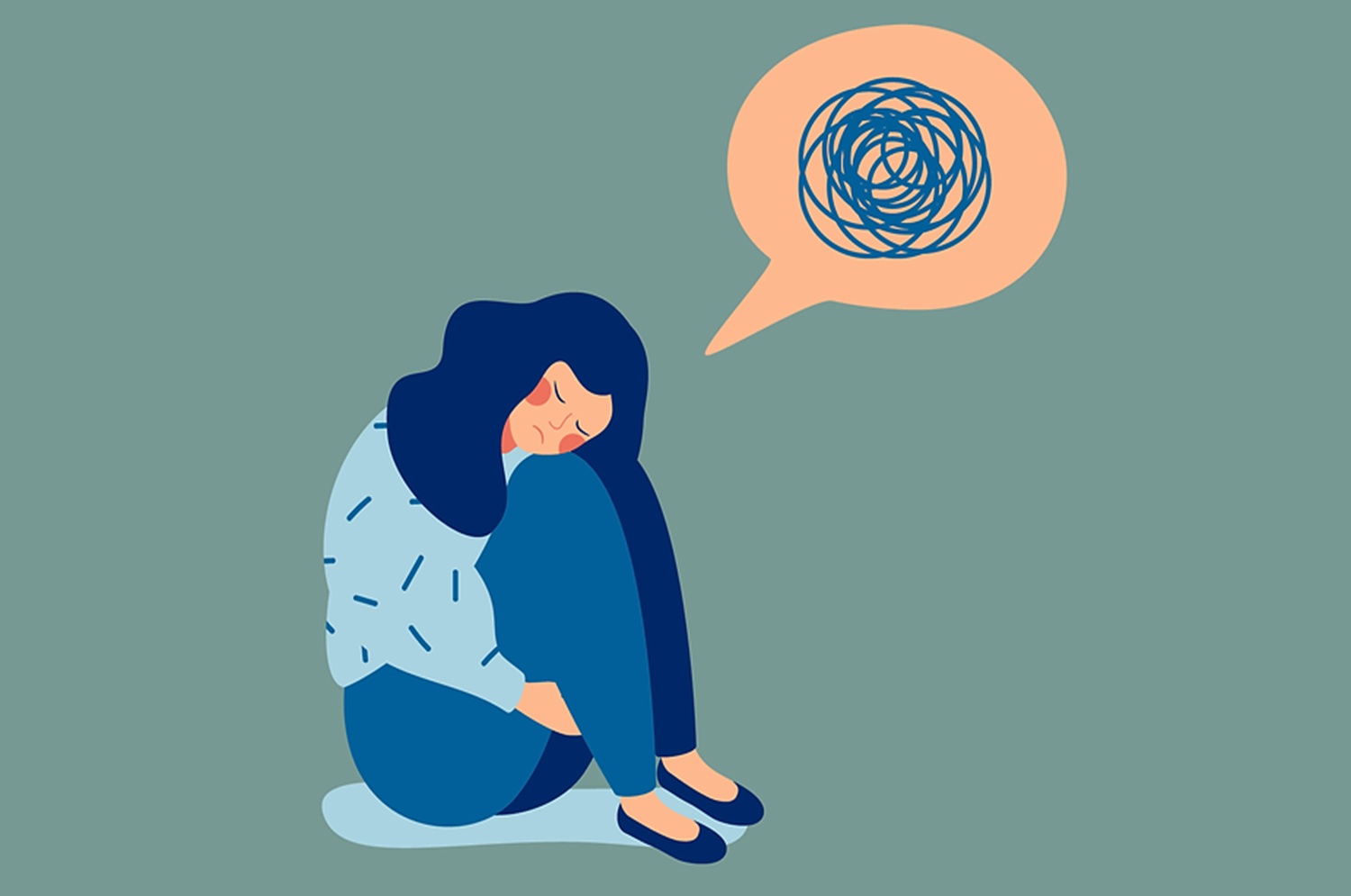It starts with a small thought… and suddenly, your mind is a storm of “what ifs.” You’re not alone. Millions of people deal with constant worrying every day. The good news? You can take back control. This guide will walk you through practical, beginner-friendly strategies to help you stop overthinking and feel calm again.
Table of Contents
ToggleUnderstand Why You’re Always Worried
The Psychology Behind Chronic Worrying
Worrying is a mental habit rooted in fear of uncertainty. Psychologists explain that chronic worriers often develop this pattern from early life experiences, such as overprotective parenting, trauma, or constant exposure to stress. Over time, the brain adapts to stay in a state of hyper-vigilance—constantly scanning for potential threats, even when none exist. This cycle creates a distorted sense of safety: worrying feels like preparation, but it actually drains emotional energy.
Is It General Anxiety or Just Overthinking?
While both overthinking and anxiety involve repetitive thoughts, there’s a key difference. Overthinking is usually thought-based and situational—such as replaying conversations or fearing future outcomes. Generalized Anxiety Disorder (GAD), on the other hand, includes persistent worry for six months or more, often accompanied by restlessness, fatigue, and sleep issues. A mental health professional can help distinguish the two. Knowing the difference is crucial for choosing the right coping strategies.
How Worry Affects Your Brain and Body
Chronic worry activates the amygdala, your brain’s fear center. This triggers a cascade of stress hormones like cortisol and adrenaline, preparing the body for “fight or flight.” Physically, this can lead to headaches, muscle tension, digestive problems, and a weakened immune system. Mentally, it disrupts concentration, decision-making, and emotional regulation. Over time, it can even rewire your brain to prioritize fear-based thinking, making calm and clarity harder to access.
7 Practical Ways to Stop Worrying Constantly
1. Practice the “Name It to Tame It” Method
Label your emotions clearly—“I feel anxious” or “I’m scared about tomorrow.” Naming your feelings reduces their intensity and helps the brain shift from panic to problem-solving.
2. Limit the Time You Spend Thinking About Problems
Set a timer for 5–10 minutes to let your mind worry freely. When the timer ends, gently redirect your focus. This reduces overthinking and preserves your mental energy.
3. Try Box Breathing or Grounding Techniques
Box breathing (inhale–hold–exhale–hold, each for 4 seconds) and grounding (naming what you see, hear, feel) calm the nervous system instantly and anchor you to the present.
4. Set a “Worry Time” in Your Day
Choose a fixed 15-minute window to process worries. Write them down, then shift your attention. This teaches your brain that it doesn’t need to stay on high alert all day.
5. Challenge Irrational Thoughts with Evidence
Ask yourself: “Is this thought 100% true?” and “What’s the worst that could happen?” Replace fear-based assumptions with facts. Your brain will start thinking more rationally over time.
6. Focus on What You Can Control
List what’s within your control and take one small action. Let go of what’s beyond you. Empowering yourself reduces helplessness and breaks the cycle of endless worry.
7. Disconnect from News and Overstimulating Content
Limit exposure to anxiety-inducing news and negative social media. Your mind needs space to rest. Curate your input to promote calm, not chaos.
Create a Worry-Free Daily Routine
Creating a consistent daily routine is one of the most powerful steps you can take to reduce anxiety and reclaim mental peace. The goal isn’t perfection—it’s creating small, sustainable habits that make your day feel more intentional and grounded.
Morning Mindfulness Practices
Your morning sets the tone for the rest of the day. Begin with 5–10 minutes of mindfulness, such as:
- Deep breathing or guided meditation
- Journaling a few things you’re grateful for
- A short walk in nature or on your balcony
These small actions calm the nervous system, reduce cortisol levels, and mentally prepare you to handle stress more effectively.
Pro Tip: Avoid checking your phone for the first 30 minutes after waking. Let your mind settle before you invite in the noise.
Nutrition, Sleep, and Exercise Tips
Your brain and body work best when they’re supported by the basics: good food, restorative sleep, and regular movement.
- Nutrition: Eat whole foods with complex carbs, lean protein, and healthy fats. Avoid high sugar and ultra-processed meals that cause energy crashes and mood swings.
- Sleep: Aim for 7–9 hours per night. Build a wind-down routine—dim lights, turn off screens, and keep a regular sleep schedule.
- Exercise: Move your body at least 20–30 minutes a day. Walk, stretch, do yoga, or anything that gets your blood flowing.
These habits not only improve physical health but also balance mood-regulating hormones like serotonin and dopamine.
Tech Detox: Reduce Screen Time for a Calmer Brain
We spend over 7 hours a day staring at screens, which contributes to anxiety, overstimulation, and even insomnia.
Try these digital wellness tips:
- Set “no-screen” zones—like your dining table or bedroom
- Use blue-light blockers in the evening
- Schedule tech-free time daily to read, journal, or simply sit in silence
The less time your brain spends in reactive mode (scrolling, notifications, emails), the more mental clarity and peace you’ll enjoy.
When Should You Seek Help?
Worry is a normal part of life, but when it starts interfering with your daily functioning, relationships, or physical health, it may be time to get professional support. Here’s how to recognize when your concern has crossed the line from manageable stress to a possible anxiety disorder—and what steps you can take toward healing.
Signs Your Worry Might Be an Anxiety Disorder
If your worry feels constant, overwhelming, or disproportionate to actual events, it could be more than just stress. Here are some signs that suggest your anxiety may require professional evaluation:
- Persistent feelings of dread or unease without a clear cause
- Difficulty concentrating, sleeping, or relaxing due to worry
- Physical symptoms like racing heart, nausea, or tightness in the chest
- Avoidance of situations that may trigger anxiety
- Reassurance-seeking behavior or compulsive thinking
These patterns can indicate generalized anxiety disorder, panic disorder, or social anxiety—conditions that are treatable with the right approach.
How Therapy or Coaching Can Help
Psychotherapy—especially Cognitive Behavioral Therapy (CBT)—has proven highly effective in treating anxiety. A trained therapist can help you identify negative thought patterns, manage triggers, and build emotional resilience.
Coaching, while not a substitute for therapy, can support personal growth and help you develop healthy habits and coping strategies. It may be ideal if your worry stems more from life transitions or burnout than clinical anxiety.
Both paths offer accountability, insight, and tools to help you regain a sense of control.
Medication: When Is It the Right Step?
Medication can be a helpful tool when anxiety is severe, persistent, or unresponsive to talk therapy alone. Common options include SSRIs (like sertraline or escitalopram) or anti-anxiety medications (like buspirone or beta blockers for situational anxiety).
A psychiatrist or primary care provider can guide you on whether medication is appropriate and what to expect in terms of benefits and side effects. Often, medication works best when paired with therapy.
Seeking help isn’t a sign of weakness—it’s a courageous step toward emotional freedom.
Read Also:
The Psychology Behind Broken Bonds and Growing Hatred
The Truth About Panic Attacks, And How to Calm Them Quickly
FAQ:
1. What causes constant worrying?
Constant worrying is often caused by anxiety, negative thinking patterns, past trauma, or chronic stress.
2. Is it normal to feel worried all the time?
No, constant worry isn’t normal; it may signal anxiety disorder or emotional overwhelm needing attention.
3. How do I calm my mind from overthinking?
Practice deep breathing, mindfulness, journaling, and limit screen time to quiet your racing thoughts effectively.
4. Can over-worrying affect your health?
Yes, chronic worrying can lead to insomnia, high blood pressure, digestive issues, and lowered immune function.
5. What are simple ways to stop worrying fast?
Take deep breaths, ground yourself in the present, distract your mind, or talk to someone trusted.









1 thought on “Worried All the Time? These Proven Tips Can Help You Relax”